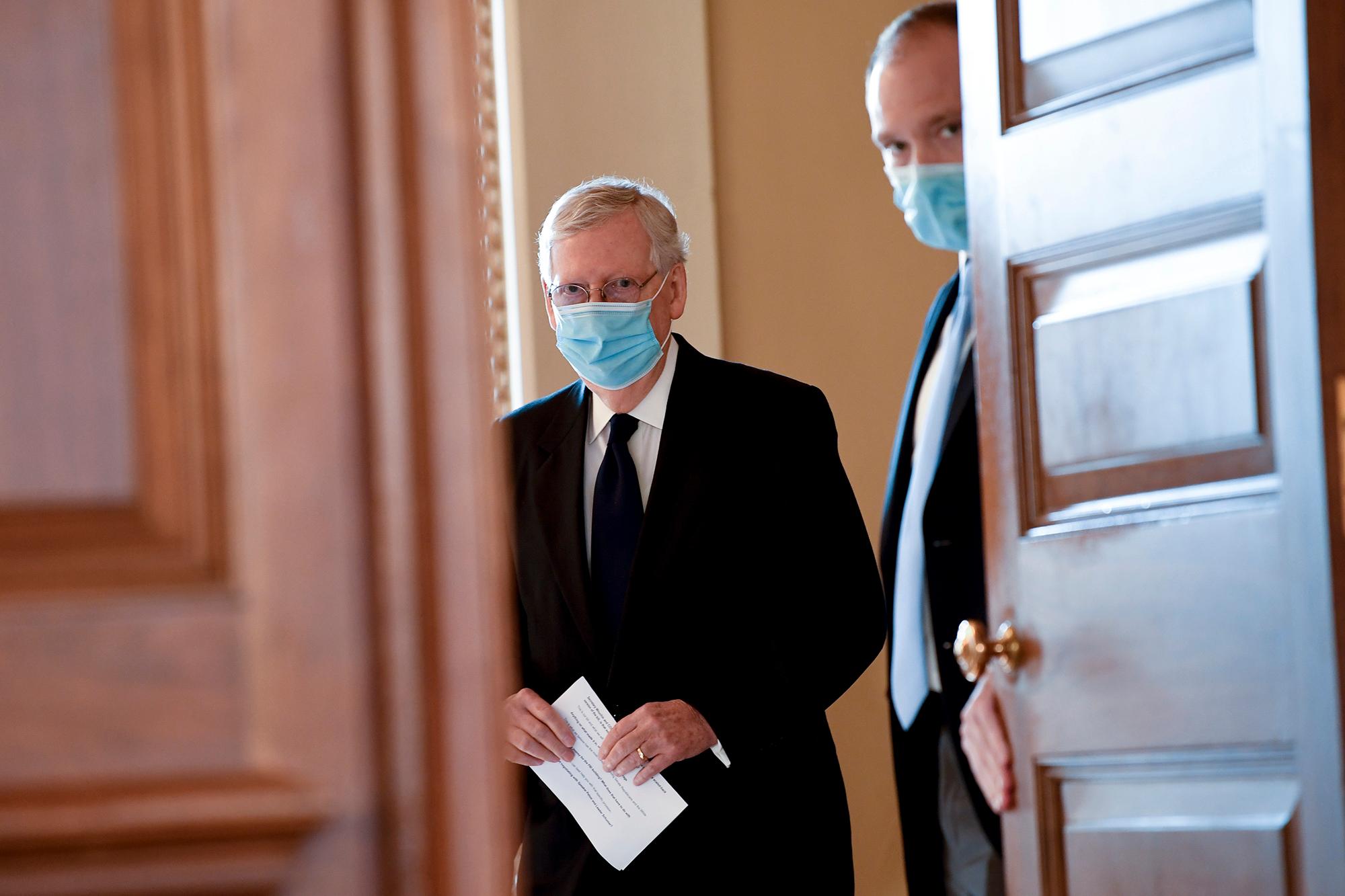
Senate Republicans unveiled their $1 trillion starting point for negotiations on the next coronavirus relief package.
The proposal, made up of several separate bills, would send another round of $1,200 economic impact payments to taxpayers. It’ll follow the same criteria as the last check, with one difference — there would be no age limit for dependents.
Also included is coronavirus-related liability protection, a priority for Senate Majority Leader Mitch McConnell. Additional spending highlights:
- Hospitals would get an additional $25 billion
- Testing and tracing efforts would get an additional $16 billion
- Schools get $105 billion
- The Agriculture Secretary would get an additional $20 billion to help producers across the country.
There were also some surprises, such as $1.7 billion for a new FBI building in Washington, D.C. and $30 billion for the Pentagon, including the procurement of weapons systems.
McConnell described the bill as “a tailored and targeted draft that will cut right to the heart of three distinct crises facing our country — getting kids back in school, getting workers back to work, and winning the health care fight against the virus.”
But Colorado Democratic Sen. Michael Bennet called the Republican proposal “woefully inadequate,” including their take on extending unemployment benefits. The bill would continue the emergency unemployment supplement, but lower the payment from $600 to $200 through September. After that, it would be 70 percent of a worker’s previous salary.
“To cut benefits in this moment would inflict profound damage on these workers, families, and our broader economy,” Bennet said.
Republicans also want to renew the Paycheck Protection Program and would allow companies to get a second loan. For Bennet, that doesn’t go far enough to help businesses.
“It doesn’t do enough to sustain our hardest-hit small businesses that need more flexibility and sustained support, which is what we've proposed in the bipartisan RESTART Act,” he said.
It’s a proposal he’s been working on with Republican Sen. Todd Young of Indiana. Young called the GOP proposal a “good first step.” Like Bennet, he said more needs to be done to help small businesses.
“Everything that's not included in the revamped Paycheck Protection Program that is in my RESTART Act ought to be considered,” Young said.
As it currently stands, the bill does not include additional state and local aid, rather it just grants more flexibility on the money they received in the CARES Act. That’s something where GOP Sen. Bill Cassidy of Louisiana thinks additional funding “will be required.”
He’s not alone. House Democrats, including Colorado Rep. Joe Neguse, have called on the Senate to support “our workers, our cities and our families.”
“Public health workers, EMS workers, firefighters, corrections officers, sanitation workers, custodians and so many more, these workers — our neighbors, friends and families — are the real people impacted when we talk about supporting state, local, and Tribal governments,” said the Democratic joint statement.
It is one of several issues that most on the Hill, including Colorado Republican Sen. Cory Gardner expects, will be negotiated in the coming days. While many Republican Senators were quick to give their first take on the bill, Gardner talked about the lens from which he’d analyze the bill: addressing the pandemic, helping individuals “with the relief that they need” and getting businesses going again.
“Those are the three things I will review all legislation through,” Gardner said. “It’s going to continue to be cooperation and compromise that gets it across the finish line.”
Negotiations are expected to be difficult. While Democrats remain unified on their priorities, Senate Republicans have been divided. Sen. Lindsey Graham estimated that half the Republican Senate caucus does not support the bill at its current price tag, while others, especially those facing the voters this fall, want to do more.
Kentucky Sen. Rand Paul went further. He’s opposed to the bill because of the amount of spending involved. He said, “a lot of the people running for office can’t spend enough either, so they’re all on board with it.”
“See, I think they have the misguided notion that you have to spend this or you can’t get elected,” Paul said.
To pass the Senate, any bill will need Democratic support, even more so if Republicans vote against their own party’s plan.
Party leaders and the White House have begun negotiations in earnest as they face down a number of deadlines, including the expiration of certain benefits and a Senate recess slated to begin Aug. 8.








